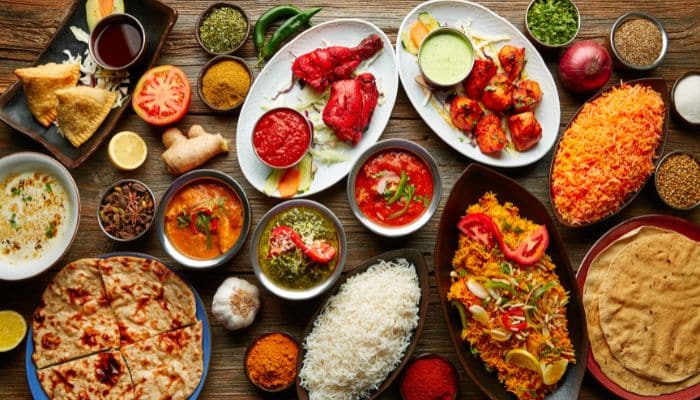The vegan diet is one of the most popular diets today. This is due to its many health benefits and diet restrictions. Many people are opting for plant-based foods as it has so many health benefits. However, not everyone can do so without negative effects on their bodies.
Even though a vegan diet is high in fruits and vegetables, it’s still not enough to meet the dietary needs of people who don’t eat animal products. The vegan diet is low in essential nutrients such as iron, zinc, protein, vitamins B12 and D, omega-3 fatty acids and more. If you have been thinking about going vegan or vegetarian, here are some of the negative effects you should be aware of:
Iron deficiency
Iron is an important mineral for your health. It helps to synthesize proteins, maintain healthy blood cells and enzymes in your body, and is required for energy production. The main sources of iron for vegetarians are non-meat products. However, if those sources are not combined with iron-rich foods, then the body will be low in iron.
This can lead to fatigue, anemia, decreased immunity, and a poor quality of skin and hair. You can prevent iron deficiency by consuming iron-rich foods like lentils, beans, tempeh, tofu, seeds, nuts, oatmeal, and dark green vegetables.
Zinc deficiency
Zinc is an important mineral that is needed for healthy immune, reproductive and metabolic functions. Iron is required to produce the hormone insulin and to balance sugar levels in the body. Therefore, the zinc deficiency is another common issue associated with a vegan diet.
Lean proteins, seeds and nuts are great sources of zinc. A plant-based diet is low in zinc, thus a high risk of developing a deficiency is there. You can consume seeds like pumpkin, sesame, sunflower and flax for a healthy diet.

B12 deficiency
This is another common problem to vegetarians and vegans. B12 is a vitamin that supports the metabolism of carbohydrate, protein, and fat. Additionally, it also supports brain health and helps you to maintain healthy blood cells.
A deficiency in B12 can cause anemia, decreased energy, weakness and weight loss. You can consume B12-fortified foods like soy milk, nutritional yeast, and fortified breakfast cereals.
Omega-3 fatty acid deficiency
Vegan diets are low in omega-3 fatty acids. This is because fish is not a part of the vegan diet. You can consume walnuts, flaxseeds, canary seed and pumpkin seeds for a healthy vegan diet. Additionally, you can also consume fatty fish like sardines, mackerel and herring for a balanced vegetarian diet.
D deficiency
This vitamin is essential for the metabolism of carbohydrates, fats, amino acids, and proteins. Vegetarians are commonly low in D, especially if they are not consuming enough fortified foods. Vegans can consume fortified foods like fortified soy milk, orange juice, and cereal.
Bad breath and other digestive issues
A vegan diet is low in fatty acids, vitamins and minerals such as iron, zinc, calcium and B vitamins. This can lead to bad breath, constipation or diarrhoea. You can consume foods like yogurt, fortified soy milk, whole-grain cereals and pulses to prevent these issues.
Vegetarians and vegans are recommended to consume 2-3 servings of complex carbs like whole-wheat bread, whole-wheat pasta, oatmeal and legumes to get the required amount of B vitamins. You can also consume fatty acids like fish like mackerel, sardines and salmon for a healthy intake of omega-3s.
Encouraging weight gain
A vegan diet is low in protein and fat, thus you can increase the risk of weight gain. However, you can consume whole-grain foods, whole-grain cereals, and legumes for a balanced diet. Also, you can consume soy protein, almond butter and veggie burgers for a protein-rich diet.
Vegetarians are recommended to consume lean proteins like soy products, tofu, tempeh, lentils and legumes. Vegetarians can also consume nuts, seeds, whole-grains, and starchy vegetables like sweet potatoes, carrots and peas. You can also consume vegetable juices like tomato, carrot and cucumber for a vegetable-rich diet.
Conclusion
Vegetarian and vegan diets are rising in popularity. These diets are low in animal products, but high in vegetables and, in some cases, grains. They are often healthful and ethical, but they may not provide all the nutrients you need and they may be difficult to maintain long-term. Due to the fact that they are loaded with fruits, vegetables, and beans, vegetarian diets are typically high in vitamins and minerals, and low in fat and protein.
However, if you cut out meat and fish, you’ll get very few of those. Vegetarians should eat a varied diet, and include at least two servings of vegetables and two servings of whole grains each day. Vegan diets are even more reliant on vegetables, and they should consume at least five servings of fruit each day to get enough vitamin B12. Some people think going vegetarian or vegan is healthier than eating meat, but these diets may have some disadvantages as well. They are high in fibre and low in calories, but they are also low in protein, iron, zinc, omega-3 fatty acids, and other nutrients.




